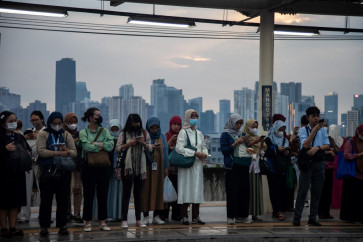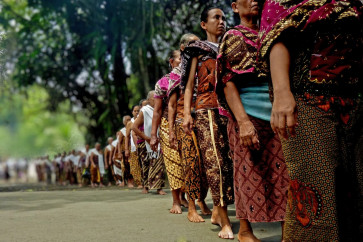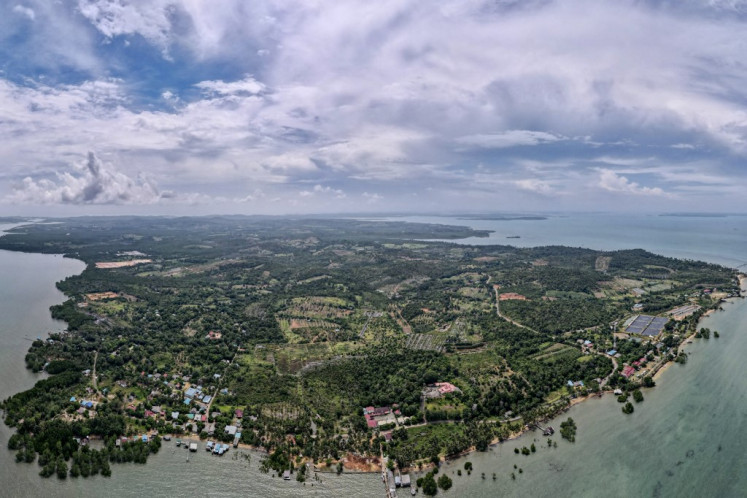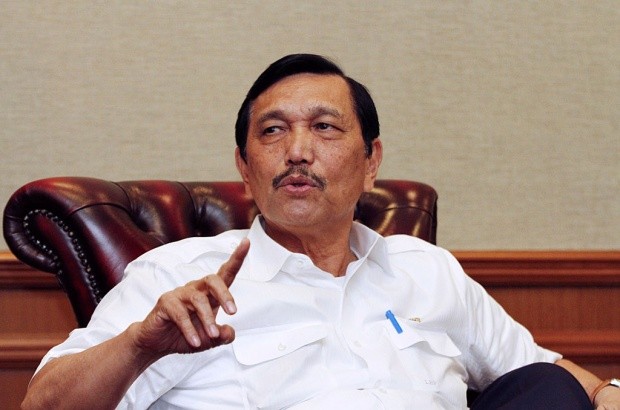Popular Reads
Top Results
Can't find what you're looking for?
View all search resultsPopular Reads
Top Results
Can't find what you're looking for?
View all search resultsBalinese dictionary awarded UNESCO prize for literacy
BASAbali Wiki, a Balinese-English-Indonesian dictionary, was one of the five initiatives from around the world to receive a United Nations Educational, Scientific and Cultural Organization (UNESCO) International Literacy Prize for its contribution to literacy and multilingualism
Change text size
Gift Premium Articles
to Anyone
B
ASAbali Wiki, a Balinese-English-Indonesian dictionary, was one of the five initiatives from around the world to receive a United Nations Educational, Scientific and Cultural Organization (UNESCO) International Literacy Prize for its contribution to literacy and multilingualism.
BASAbali Wiki, launched in 2014, was initiated by the BASAbali Group, spearheaded by Balinese academics and writers in an effort to preserve the Balinese language.
BASAbali executive director Gus Dark told The Jakarta Post on Thursday he hoped the award would not only be merely a prestigious achievement for Bali and Indonesia, but rather an opportunity to reinvigorate literacy in the digital era.
“This award should encourage Indonesian millennials to master foreign languages as well as local wisdom from their own culture and mother tongue. Literary culture in Indonesia, which is rather low, should be considered a crucial issue, as prominent as plastic waste, renewable energy and local unicorns,” Gus said.
BASAbali’s website — accessible at dictionary.basabali.org as well as an app version on Google Play Store — is equipped with a full-fledged dictionary, complete with usage examples and Balinese script.
Alongside the dictionary, the wiki also includes a virtual library of Bali-related articles, ranging from biographies of prominent Balinese figures, folktales to environmental initiatives as well as simple word games to help users brush up on their Balinese vocabulary.
According to BASAbali Wiki founding director Alissa Stern, the wiki has been used by close to 750,000 people.
BASAbali board member Rio Helmi said the news came as a “huge vindication” for the BASAbali board and Wiki team, particularly acknowledging Stern as well as BASAbali wiki chair Gede Nala Antara.
“It’s perhaps slightly cliché to say that Bali’s culture is immensely rich — but many people don’t realize just how rich it is,” Rio said in a statement made available to the Post on Thursday from Nepal.
“Bali isn’t monolithic — each region of Bali has its own linguistic and cultural variant. In bigger towns, especially Denpasar, the three-tiered language has been eroded, especially the polite form and the highest forms, by the influx of modernity and ‘foreign’ languages, including slang,” Rio said.
Rio said there were also other aspects of modernity that threaten not just the Balinese way of life, but also the environment and basic welfare.
“We see language as an important vehicle for the Balinese to express solidarity, to respond in meaningful ways to these threats. The huge response to the Wiki project is very heartening; it points to a renewed, positive interest in Balinese culture that isn’t about identity politics, rather a celebration of the richness of the language and the very real possibility of providing an avenue of expression for relevant ideas in a rapidly changing environment.”
UNESCO made the prize winners’ announcement on Sept. 2 ahead of International Literacy Day on Sept. 9. The event will be celebrated at its Paris headquarters with a conference and the award-giving ceremony for the prizes, which this year recognize projects from Algeria, Columbia, Indonesia, Italy and Senegal. All five recipients will receive a medal, a certificate and a grant of US$20,000.
BASAbali Wiki will be awarded the UNESCO Confucius Prize for Literacy, supported by the People’s Republic of China, alongside two other initiatives from Italy and Colombia.
Two initiatives from Algeria and Senegal will receive the UNESCO King Sejong Literacy Prize, sponsored by South Korea.
Held since 1967, the UNESCO International Literacy Prizes have honored over 485 projects from around the world for their efforts in literacy.
Other notable recipients of the prizes include Indonesia’s Education and Culture Ministry’s Community Education Development Directorate General, which received the UNESCO King Sejong Literacy Prize in 2012.
UNESCO director general Audrey Azoulay said in a statement that “literacy is the starting point for any form of quality inclusive education and we need to support and scale up the many initiatives across the globe seeking to make literacy a reality for all.”
According to UNESCO data, nearly 40 percent of the world’s population lacks access to learning in the language they speak or understand. In 2016, only 5 percent of the world’s estimated 7,000 languages were present on the internet, while 50 percent of spoken languages were considered to be in danger of disappearing. (ste)










